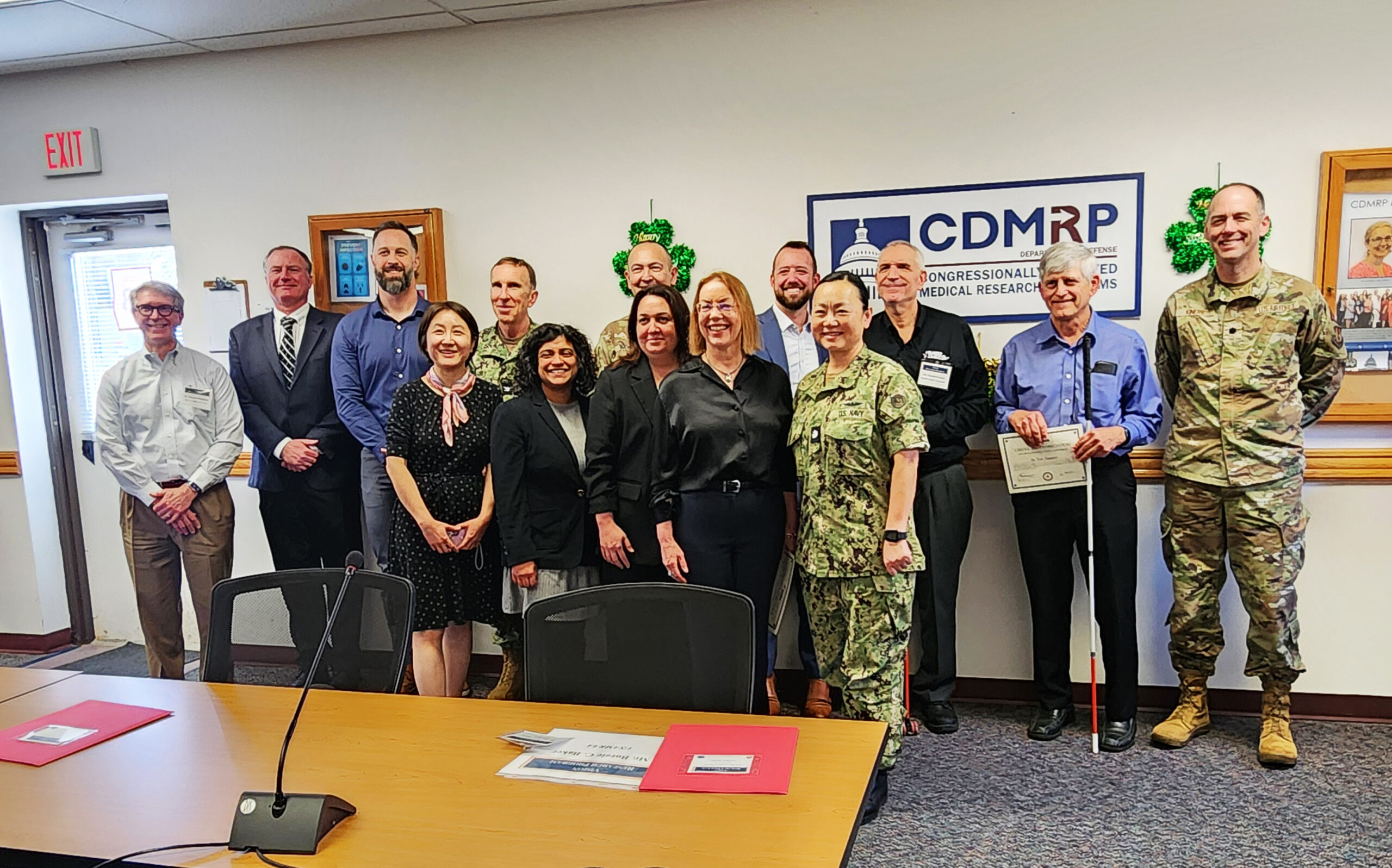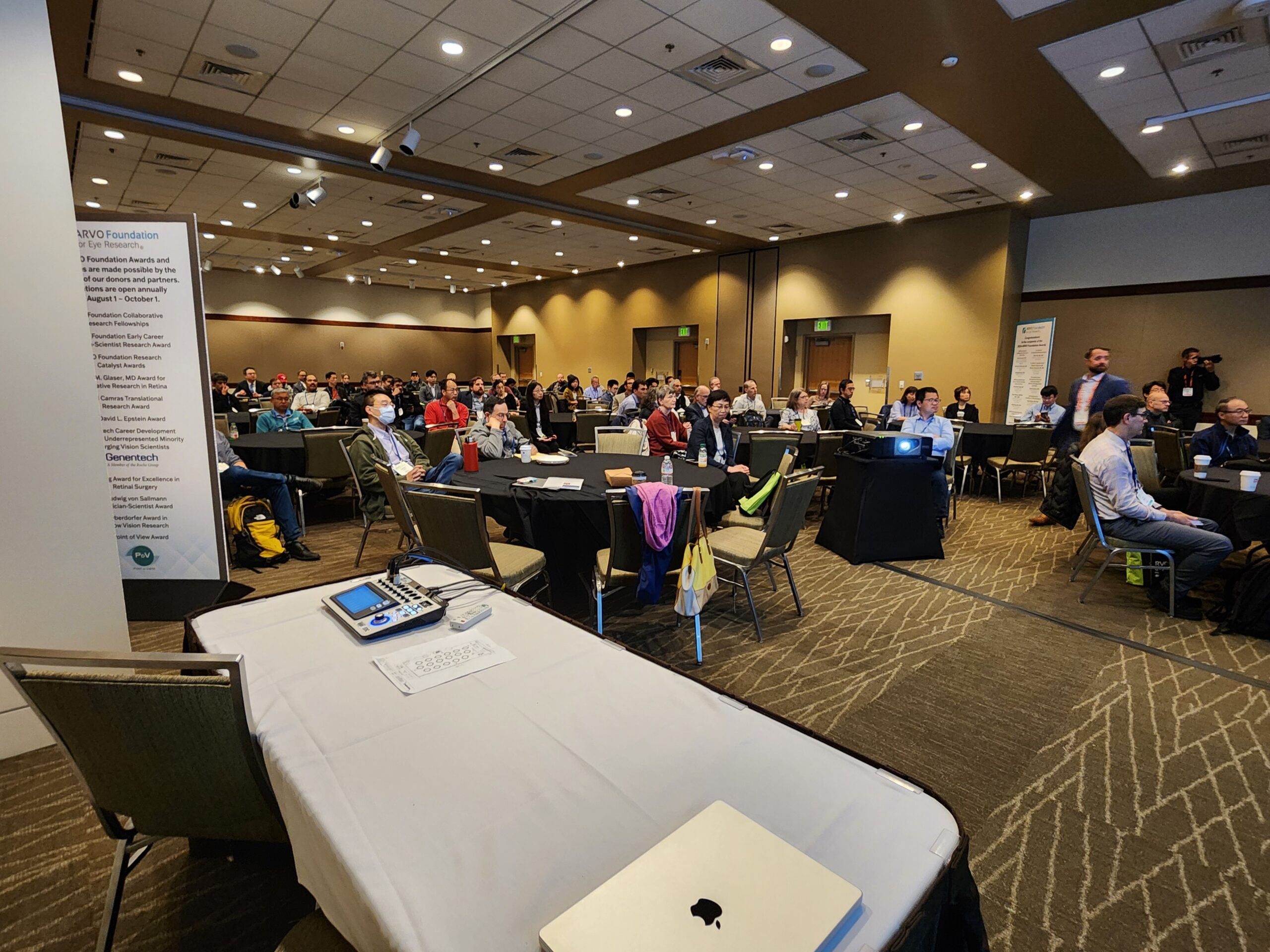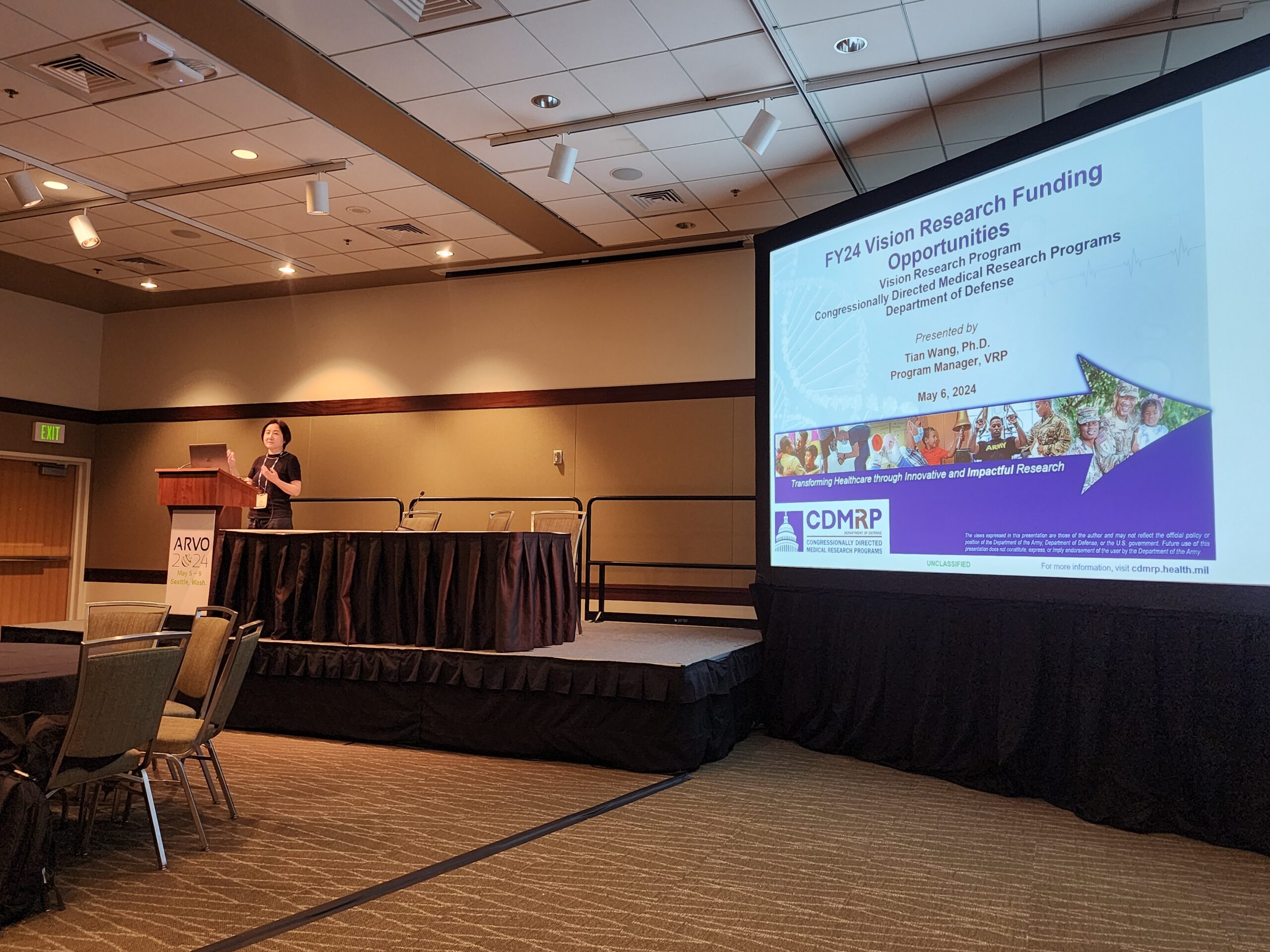NAEVR is proud to collaborate with the Department of Defense’s (DoD) Vision Research Program (VRP), part of the Congressionally Directed Medical Research Programs (CDMRP).
We are honored to collaborate with the Department of Defense’s (DoD) Vision Research Program (VRP), part of the Congressionally Directed Medical Research Programs (CDMRP). This vital program focuses on addressing the unique vision challenges faced by service members and veterans, including traumatic eye injuries and vision-related complications arising from military service.
Through advocacy and education, we work to ensure that the VRP receives the funding and support needed to drive innovative research. This partnership has led to advancements in areas such as regenerative medicine, prosthetic vision devices, and the development of diagnostics and treatments for battlefield-related vision trauma. Our efforts highlight the critical role of vision research in improving readiness, recovery, and quality of life for those who serve our nation. By fostering collaboration between policymakers, researchers, and the DoD, NAEVR helps to amplify the impact of this program, ensuring that service members, veterans, and the broader community benefit from these groundbreaking discoveries. Together, we’re committed to protecting and restoring sight for those who sacrifice so much in defense of our country.

The session highlighted CDMRP funding avenues specifically related to funding under the Vision Research Program (VRP).



We’ve intensified its advocacy efforts to protect and strengthen federal support for vision research. Through coalition building, congressional engagement, and strategic partnerships, we continue to champion policies that advance the Vision Research Program and safeguard the future of federally funded research.

Research funded by the VRP has led to the development of prosthetic devices for individuals with vision loss. These devices are currently in clinical trials and hold the potential to restore partial vision, significantly enhancing the quality of life for veterans who have lost their sight due to service-related injuries.
The integration of AI in diagnostic tools has enabled the development of portable imaging devices, such as ruggedized Optical Coherence Tomography (OCT) and ultrasound technologies. These devices can be deployed closer to the point of injury, allowing for immediate assessment and treatment of eye injuries on the battlefield, thereby improving outcomes for injured service members.
We aid the VRP by advocating for sustained funding, raising awareness of the program’s importance, and highlighting its impact on the vision health of service members and veterans. We also foster relationships between researchers, the DoD, and the vision community to encourage collaboration and maximize the impact of federally funded research.